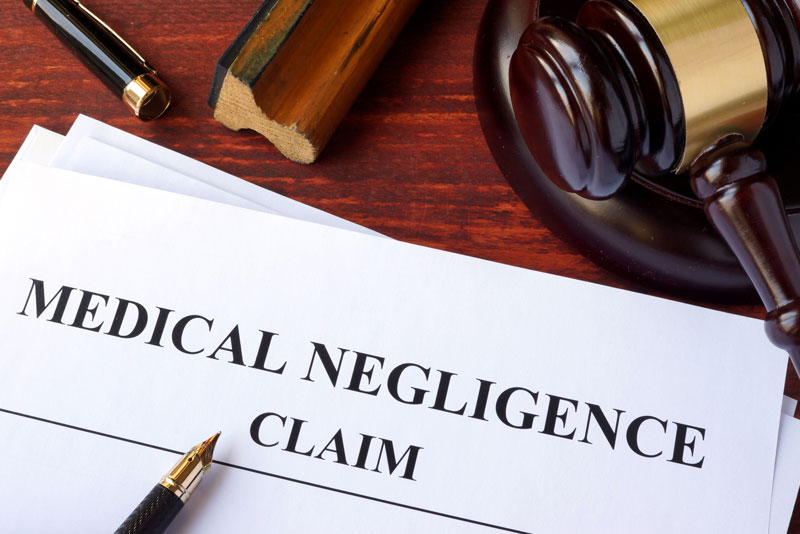Medical negligence can range from injuries during birth, surgical errors, mistreatment in a care home, eye surgery complications, and so on. Attorneys can pursue medical malpractice cases only after receiving appropriate evidence like supporting medical records and reports. Both plaintiff and defense lawyers require reliable medical review solutions to review and organize the voluminous medical records collected to prove the case.
Listen to our podcast – How A Medical Record Review Company Supports Medical Malpractice Attorneys
Once the patient has filed a medical malpractice claim, the following are the important stages of the claim –
Determine Whether Negligence Occurred
This is the first step the attorney takes, before investigating further. The attorney has to find out whether the physician acted negligently in rendering care, and whether that negligence resulted in injury. Major legal elements to prove are – a professional duty owed to the patient, breach of such duty, injury caused by the breach, and resulting damages.
Read our blog on “Four Key Elements To Prove Medical Negligence Or Malpractice
Obtaining the Medical Records
This is one of the most important stages in a medical negligence case, where the attorneys collect necessary information about the quality of the treatment the patient received and understand how it has affected their life. Documents that serve as good evidence to prove medical negligence are – medical records including X-rays and ultrasounds, detailed statements from the claimant, photographs, witness statements, reports from medical experts, hospital billing information, clinic notes, and more.
Discovery
In a medical malpractice case, the discovery process allows both the defense and plaintiff attorneys to obtain information from the other party that relates to the claim. The parties may also obtain statements and copies of documents from the other party. Deposition takes place during the discovery phase. During the deposition, the defendant physician answers the plaintiff attorney’s questions. The injured party can also be deposed by the doctor’s attorney.
Deposition allows each party to review the strengths and weaknesses of their opponent’s case, making it more likely to end the case in a fair settlement. These deposition testimonies given under oath are recorded for use in court as evidence to prove the claim. Professional deposition summary services are available for attorneys to support their trial preparation.
Settlement Negotiations
Attorneys often resolve medical negligence cases by negotiating the settlement with the practitioner’s insurance company. According to a report from the U.S. Bureau of Justice Statistics, about 93% of all medical malpractice cases are resolved before trial.
If both causation and the breach of the standard of care are proved, the medical malpractice attorney needs to assess the value of the case for settlement purposes. Damages in a medical malpractice case can fall under two categories: economic and non-economic damages. Economic losses include – medical bills incurred, including those that are likely to be incurred in the future, loss of future income attributable to the injury, the cost of care for the patient, the cost of accommodations necessitated by the injury, etc. At the same time, non-economic damages attempt to compensate the patient and family for intangible losses, such as the patient’s pain and suffering caused by the injury.
Based on the perceived damages, attorneys have to make a good estimate of the patient’s economic damages, including future economic damages. The age of the patient, and the severity and impact of the injury will be taken into consideration for negotiation settlement. Medical malpractice attorneys work to get their clients the maximum compensation. In such cases, settlement negotiations often take place over the course of weeks or months. If a doctor genuinely believes that he or she is not at fault, they may refuse to authorize a settlement and the case may proceed to trial.
Trial
A pre-trial investigation period could involve months or even years and expert physicians will be called to testify that the defendant breached the standard of care, and also how those injuries have affected the plaintiff’s daily life. At trial, the plaintiff’s attorney has to prove every element of the case by presenting information gathered during the pretrial discovery. Both the parties present arguments and introduce evidence supporting their positions. Both the attorneys and the defense counsel will have an opportunity to question all the witnesses.
The experts hired by each side testify and the jury will decide if the doctor acted negligently and if that negligence caused the plaintiff’s injuries. If the jury decides in favor of the plaintiff, the plaintiff will receive due compensation. The losing party may have the right to appeal, and if an appeal ensues, no damages will be paid out until the appeal is finally resolved.
While attorneys are busy proving negligence, professional companies providing medical record review for malpractice cases can assist them in organizing, summarizing and reviewing medical records for their cases.




